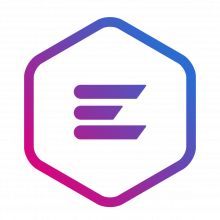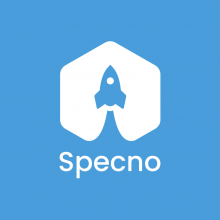
There are 49 Companies in South Africa
that provide Angular Development Services!
The level of IT spending in South Africa is forecast to increase in 2025 at a higher pace than the economy did in 2020. Although the general state of the economy has a direct impact on the growth of the ICT sector, its customers continue to invest in technology, and the sector consistently shows a growth rate that is higher than GDP.
Discover Top IT Companies in South Africa specialized in Angular and other related services. Find the best IT service providers for your projects.
Angular (formerly AngularJS) is a popular open-source web application framework maintained by Google and a community of developers. It's used for building dynamic, single-page web applications (SPAs) and web-based applications in general. Angular provides a structured and organized way to create complex web applications by extending HTML with additional features and enabling the development of interactive, responsive, and maintainable front-end web interfaces.
Handpicked companies • No obligation to hire • 100% risk-free
Featured Companies in South Africa
This month, the following Angular Development companies managed to provide an outstanding service and support. It's worth taking a look.
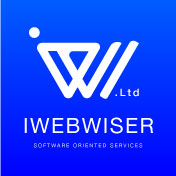
Bellville, Western Cape, South Africa Head office in: India
iWebwiser offers digital transformation through advanced development and strategic marketing to help businesses reach their full potential.

Cape Town, South Africa Head office in: India
Swaran Soft is Your Trusted Partner for Low Code, Generative AI, Custom Software, and Global Digital Transformation. #TechSimplify #GenAI #Enterprise
Explore Top Angular Development Companies in South Africa

Johannesburg, South Africa Head office in: United States
Access the Top 1% Tech Talent | 1500+ In-House Developers | Trusted by Fortune 500 Companies

Kuchoriya TechSoft Verified Company
Western Cape, South Africa Head office in: United States
Kuchoriya Techsoft—Mobile app, web, and custom software development company helping businesses with scalable digital transformation solutions.

Fire Bee Techno Services Verified Company
Cape Town, South Africa Head office in: India
Fire Bee Techno Services is an ISO-Certified Blockchain and AI Development Company In india and across the world with 13+ years of experience.
New Perspective Design is a South African web design & digital marketing agency specializing in SEO-driven website design, branding, and advertising.
Services:
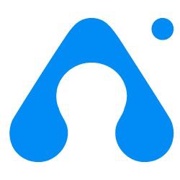
Johannesburg, South Africa Head office in: India
Leading Software and Mobile App Development Company

ManekTech Solutions Verified Company
Cape Town, South Africa Head office in: India
Microsoft GOLD Certified Partner | Scrum Master Certified | Magento 2 Certified | 2000+ Projects | 300+ Team | 500+ Global Clients | 50+ Technologies

PRETO BUSINESS Corp. Verified Company
Johannesburg, South Africa Head office in: United States
PRETO Business Corp.—a Public Affairs&Growth Hacking agency that employs a comprehensive approach to communication. VISION: WE RISE BY LIFTING OTHERS
Services:

Mobirevo - Web, Mobile App & Software Development Company Verified Company
Pretoria, South Africa Head office in: Nigeria
Mobirevo is a Leading custom software development agency focused on web, mobile app development & saas application development.

Innov8ive Software Solutions (Pty) Ltd Verified Company
Sandton, South Africa Head office in: South Africa
We are in this business to help other small businesses grow and move forward. Its as simple as that. There is no catch, no gimmick, just experience.
Services:
Elemental is a South African-based web development agency focused on custom web and app development and software consulting.
Amazing Designs Agency creates impactful branding design and digital solutions that make your business stand out.
Services:
Making complex technology, simple and accessable.
Rocketsoft is a trusted partner for exceptional mobile app, website and custom software development. We empower digital transformation.

Cape Town, South Africa Head office in: South Africa
SOMS Digital provides digital marketing services, including; SEO, Search Engine Advertising, Social Media Marketing, Web Design and Development.
Services:
JSKWWC is a full-service digital agency that helps its clients handle today's complex challenges.
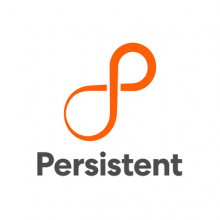
Persistent Systems Verified Company
Johannesburg, South Africa Head office in: India
See Beyond, Rise Above
Digital Marketing and Web Development Since 2015
We validate, design, and build powerful native mobile and web applications that drive business growth and help you achieve your goals.
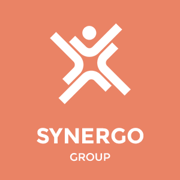
Synergo Group Verified Company
Table View, South Africa Head office in: Canada
Synergo Group delivers tailored AI, cloud, and data governance solutions, reducing costs for fintech, healthcare, and compliance-driven industries
Streaming never sleeps, and neither do our solutions. Embed self-managed, expert OTT/VOD dev teams into your operations to keep you full stream ahead.
WE'RE AN INDEPENDENT CREATIVE & DEVELOPMENT STUDIO
Services:
Filter Angular Development Companies in South Africa by Cities
Find the right tech company near you or from a specific city. Some of the best companies might be located in smaller cities.
Find more Angular Development companies around the world
TechBehemoths is the world's most advanced and user-friendly platform to match IT Companies with real clients without hustle.
South African IT Industry: General Country Profile
The level of IT spending in South Africa is forecast to increase in 2025 at a higher pace than the economy did in 2020. Although the general state of the economy has a direct impact on the growth of the ICT sector, its customers continue to invest in technology, and the sector consistently shows a growth rate that is higher than GDP.
Cybersecurity is a high priority, with global statistics indicating that South Africa is the third most targeted country in the world for cyberattacks. Alleged IT-related procurement irregularities revealed through a number of commissions of inquiry and investigations continue to affect the reputation of some industry players. It is estimated that there are over 13,000 IT companies and over 3,000 electronics companies in South Africa, with the vast majority being small companies employing less than 50 people, according to Globe-News Wire.
Why Work With a South African IT Company
New and growing trends will provide significant opportunities for small and large players in the sector. These include growth in telecommunications, data center revenues and artificial intelligence, and the internet of things, where start-ups are expected to lead innovation. Digital transformation to improve customer experiences and online purchasing, fintech banking, blockchain, augmented reality, and virtual reality are some of the technologies that will disrupt the South African ICT industry in 2019. Improvements continue in 2025, with more than 120 million cellular mobile connections equal to 193% of the total population.
The industry is characterized by consolidation and convergence of companies within the IT sector, and between companies in the IT and telecommunications sectors.
What You Should Be Aware of When Working With South-African IT Companies
The growth projections of the IT market could be higher were it not for certain factors that seem to constrain it, including the cost sensitivity of customers, low expenditure by the public sector, market maturity, and bigger companies sourcing directly from the original equipment manufacturers.
IT market growth is also impeded by bigger companies that bypass IT vendors and go directly to OEMs for products and services. This impacts negatively on smaller companies that provide niche services within the broader IT sector.
How Reliable Are South African IT Companies
Despite the challenges facing the IT sector, its products and services have become part and parcel of everyday business and social life. The fast pace of innovation helps the sector to remain relevant while shaping the future of business and society.
How Does the South-African IT Industry Relate to the Neighboring Countries?
The South African IT market, comprising hardware, packaged software, and IT services submarkets, is regarded as one of the most developed and sophisticated within the continent. South African IT companies rank among world leaders in areas such as mobile software, electronic banking services, pre-payment, revenue management, fraud prevention systems, and the manufacture of set-top boxes, according to a report provided by the South African Department of Communications.
What is Angular and what are its benefits for your projects?
Angular (formerly AngularJS) is a popular open-source web application framework maintained by Google and a community of developers. It's used for building dynamic, single-page web applications (SPAs) and web-based applications in general. Angular provides a structured and organized way to create complex web applications by extending HTML with additional features and enabling the development of interactive, responsive, and maintainable front-end web interfaces. Here are some key aspects and concepts of Angular:
-
Component-Based Architecture
-
Templates
-
Directives
-
Dependency Injection
-
Services
-
Routing
-
Observable and RxJS
-
Modules
-
Testing
-
Cross-Platform
Angular's structured approach, strong tooling, and vibrant ecosystem of libraries and extensions make it a powerful framework for building modern web applications. It is particularly well-suited for large and complex projects where maintainability and scalability are crucial.
Companies may choose Angular over other front-end frameworks for their projects for a variety of reasons, depending on their specific needs and priorities.
-
Google Backing: Angular is developed and maintained by Google. This association often gives companies confidence in its long-term support, stability, and continuous improvement. Google's involvement is seen as a sign of reliability and commitment to the framework.
-
Mature and Established: Angular has been around for a while and has a strong track record of being used successfully in large-scale enterprise projects. It has a well-defined architecture and best practices, which can be beneficial for maintaining and scaling applications over time.
-
TypeScript Support: Angular is built with TypeScript, a statically-typed superset of JavaScript. TypeScript provides better tooling, code maintainability, and catches errors at compile time, which can reduce bugs and enhance code quality, making it attractive to companies that prioritize robust code.
-
Full-Featured Framework: Angular provides a comprehensive set of tools, libraries, and features out of the box, including routing, form handling, HTTP client, and more. This can save development time and effort compared to integrating multiple third-party libraries in other frameworks.
-
Two-Way Data Binding: Angular offers powerful two-way data binding, which allows for automatic synchronization between the data model and the view. This feature can make it easier to develop interactive and responsive user interfaces.
-
Large and Active Community: Angular has a large and active community of developers and a wealth of resources, including documentation, tutorials, and third-party libraries. This can be beneficial for finding solutions to common problems and getting support when needed.
-
Enterprise-Ready: Angular provides features like dependency injection, modularity through modules, and a strong emphasis on testability. These characteristics are well-suited for building robust and maintainable enterprise-level applications.
-
Strict Coding Standards: Angular enforces a set of coding standards and best practices, which can lead to more consistent and readable code. This can be important for companies with multiple developers working on the same codebase.
-
Cross-Platform Development: Angular can be used for building both web and mobile applications. Companies looking to develop applications for multiple platforms may choose Angular for its ability to share code between web and mobile apps using technologies like NativeScript or Ionic.
-
Integration with Backend Technologies: Angular can easily integrate with various backend technologies and APIs. This makes it suitable for projects where the front end needs to communicate with different types of server-side applications.
-
Security Features: Angular provides built-in security mechanisms to help prevent common web vulnerabilities like Cross-Site Scripting (XSS) and Cross-Site Request Forgery (CSRF). This can be crucial for projects with high security requirements.
-
Ecosystem and Tooling: Angular has a rich ecosystem of tools, extensions, and IDE support, including Angular CLI for project setup and management. This can streamline development workflows and improve productivity.
Ultimately, the choice of Angular or any other framework depends on the specific project requirements, the development team's expertise, and the company's long-term goals. Companies evaluate various factors to determine which framework aligns best with their needs, resources, and priorities.


